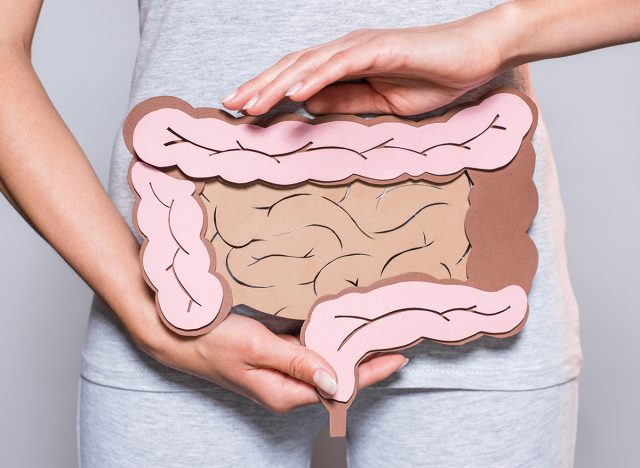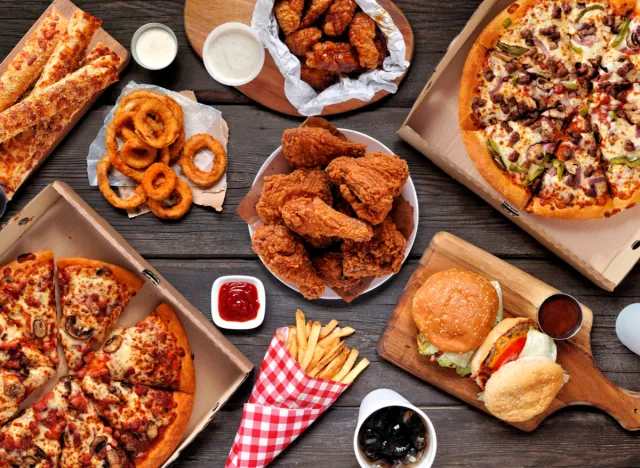Exploring ‘Colon Cancer Claimed Kirstie Alley And Pelé- Here are the Key Symptoms’ Colon cancer used to be considered a disease your grandparents would get and nobody under the age of 50 had a reason to be concerned. But, that’s just one of the myths about colon cancer. The truth is, colon cancer has been on the rise in young adults for years and everyone is now at risk–even if you’re twenty-something. According to Yale Medicine, “Yale Medicine Colon & Rectal Surgery doctors report seeing young patients with a diagnosis of colorectal cancer more often. They diagnosed colon cancer in a father of four in his 30s who thought for months that his rectal bleeding was caused by haemorrhoids. There was one week when all of the seven patients the practice saw who was diagnosed with rectal cancer were young; the oldest was 35.
Colon Cancer Claimed Kirstie Alley And Pelé – Here are the Key Symptoms
The youngest colorectal cancer patient diagnosed at this location in recent months was 18.” When caught early, the survival rate for colon cancer is favourable, however, Yale Medicine states, “Even though colorectal cancer is often highly treatable, the diagnosis can be a major ordeal for Millennials and Generation Xers, who range in age from their mid-20s to their late 50s. It can interrupt careers and damage personal finances. Young people diagnosed with colorectal cancer may need to make quick, critical decisions about such matters as preserving sperm or eggs in case treatment impacts their fertility.” Recognizing the signs and paying attention to the warning signals can be a matter of life or death. Eat This, Not That! Health spoke with experts who explain what to know about colon cancer and symptoms to be aware of.
READ ARTICLE: What To Look For In Your Own Body To See If You Might Have Bladder Cancer, Including Blood Clots

Jeffery Nelson, M.D., FACS, FASCRS, a colorectal surgeon who serves as Surgical Director of The Center for Inflammatory Bowel and Colorectal Diseases at Mercy tells us, “People should know that everyone has at least some risk of getting it. It might be “average” risk, but that’s still a risk, and screening of some sort is indicated for everyone at some point. For those at average risk, screening should start at age 45 (colonoscopy or Cologuard, typically these days). For those at higher risk, colonoscopy is the only acceptable screening/surveillance modality indicated and should be done in consultation with their doctor. Colonoscopy diagnoses AND treats many problems (like polyps) discovered during the exam, which is its main advantage. The risks of colonoscopy, like perforation or bleeding, afterwards are uncommon to rare, and should not dissuade patients from getting necessary treatment.”
Dr. J. Ben Wilkinson, Radiation Oncologist with GenesisCare explains, “Colon cancer is the fourth most diagnosed form of cancer in the United States. One of the biggest aspects in preventing colon cancer is working to live a healthy lifestyle through diet and exercise. Regular screenings with a physician are also critical due to early detection making treatment significantly easier and more effective. But, simply put, an individual can reduce their risk of colon cancer by:
- Exercising at least 3 times a week for at least 30 minutes each session.
- Eating a diet that is high in fibre, fruits, the right kinds of vegetables, and whole grains while remaining low in saturated fat and added sugar.
- Removing chemicals from your lifestyle means that you avoid smoking or drinking in general.
- Avoiding overeating and if you are obese, start to make small, incremental improvements to your lifestyle on a daily basis to slim down and reduce negative health effects.
- Knowing your family history, because if the colon, rectal or other types of cancer are in your family, you’ll need to take the above steps even more seriously.”
 READ MORE: Your Only Goal Should Be To Eat More Superfoods, Dietitian Says
READ MORE: Your Only Goal Should Be To Eat More Superfoods, Dietitian SaysDr. Nelson reveals, “We don’t know exactly why colorectal cancer is increasing in people under 50, but the usual suspects are typically blamed (Western diet and lifestyle). This is why screening is now recommended at age 45 for those at average risk. It should be noted that left-sided and rectal cancers are especially prominent in this group.” Dr. Wilkinson adds, “Although the jury is still out as to why exactly colon cancer rates are climbing in individuals under 50, many physicians point to the increase in the prevalence of unhealthy lifestyles as a major cause. Smoking, alcohol consumption, obesity, and highly processed diets are all contributing factors for increased colon cancer rates.”

Dr. Nelson says, “One major misconception is that if a patient feels fine, why should they get this done? See above for that answer. Another is that colonoscopy is dangerous and risky. See above again. Also, patients don’t want to deal with bowel prep, and I agree it’s not great. However, the vast majority of people handle it well. I’ll reiterate that this can literally save your life if polyps are found and removed before they can grow into something worse. Those are the stakes.” According to Dr. Wilkinson, “A huge misconception regarding colon cancer is that you don’t have to get screened if you are under 50. The CDC recommends beginning regular screenings as early as age 45, but there can be additional risk factors for an individual that may make it advisable to get screened earlier. These screenings can be transformative with a 90% survival rate for patients in which early detection was successful. Always discuss screening with your physician to see if getting screened earlier might be a good idea for you.”

According to Dr. Nelson, “Colon cancer symptoms present typically when the disease is advanced, and may not even be treatable or curable at that point. Those symptoms are rectal bleeding (usually dark blood and clots; sometimes passing tissue). Pelvic pain is worrisome as is abdominal pain. Unexplained weight loss and loss of appetite are concerning. Unexplained anemia and an abdominal mass are late presentations of right sided colon cancers in some cases. Many times there will be a change in bowel habit, which can be the first presenting symptom that something may be amiss. Although, the list is long of things that can cause that that aren’t cancer related. Colonoscopy would be indicated in all these instances.” Dr. Wilkinson explains, “Many patients in the early stages of colon cancer do not experience any significant symptoms. However, as cancer develops patients may begin to experience changes to their usual bowel habits, such as constipation, diarrhoea, nausea, vomiting, feeling as if they haven’t emptied their bowel after a bowel movement, light or dark blood in their stool, loss of appetite, weight loss, pain during bowel movements and stomach pains. If a patient is experiencing any of these symptoms they should seek medical consultation.”

Dr. Nelson explains, “Colorectal cancer typically spreads slowly and can take 10 to 15 years to develop in sporadic/wild type cases. Once it metastasizes, however, it can grow quickly in places like the liver and the lungs (weeks to months as opposed to years). We have great treatments for colorectal cancer, even in advanced cases, and have a multidisciplinary approach to this problem at Mercy, as do many facilities at this point. The bottom line is that patients need to pay attention to this and know their individual risks, so they can get the appropriate screening for them. A brief conversation with their doctor can quickly establish what that risk is and inform treatment.” Dr. Wilkinson tells us, “Colon cancer is typically slow-spreading cancer with it growing slowly over many years. However, more aggressive forms can spread rapidly to other parts of the body in a relatively short amount of time making detection and treatment crucial. Colon cancer has a variety of treatments including surgery, chemotherapy, and other forms of cancer therapies. The most successful treatment involves localizing cancer and operating to remove the tumour or tumours with patients experiencing a 50% cure rate, according to the National Cancer Institute.”
Heather Newgen
READ POST: 4 Benefits To Jog Just 10 Minutes A Day

